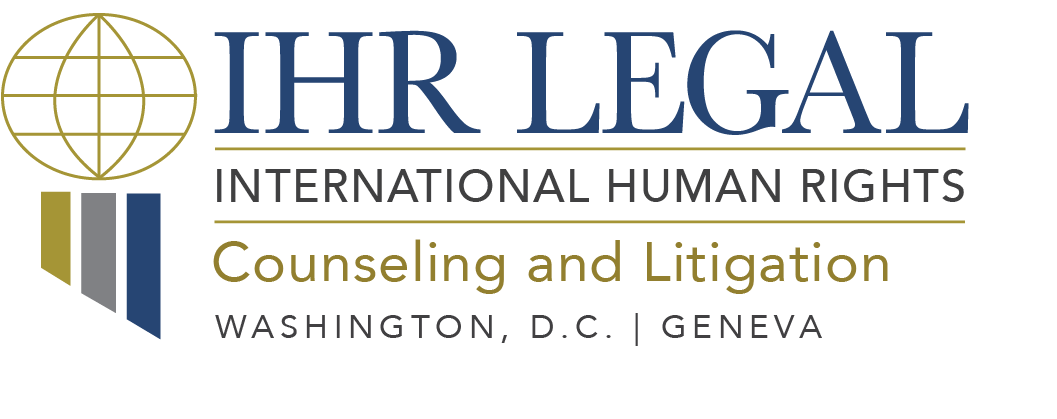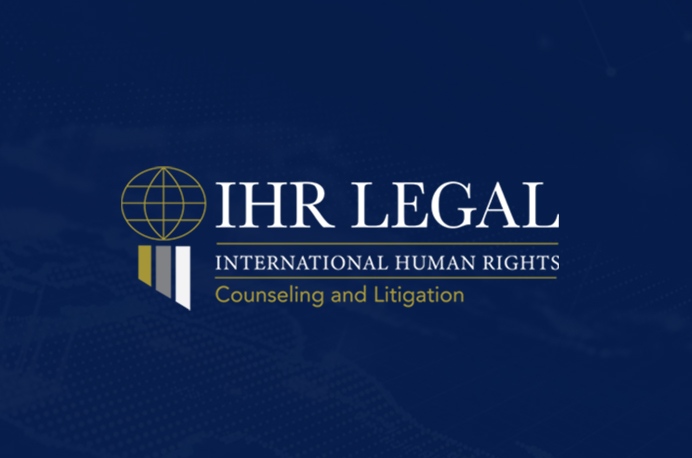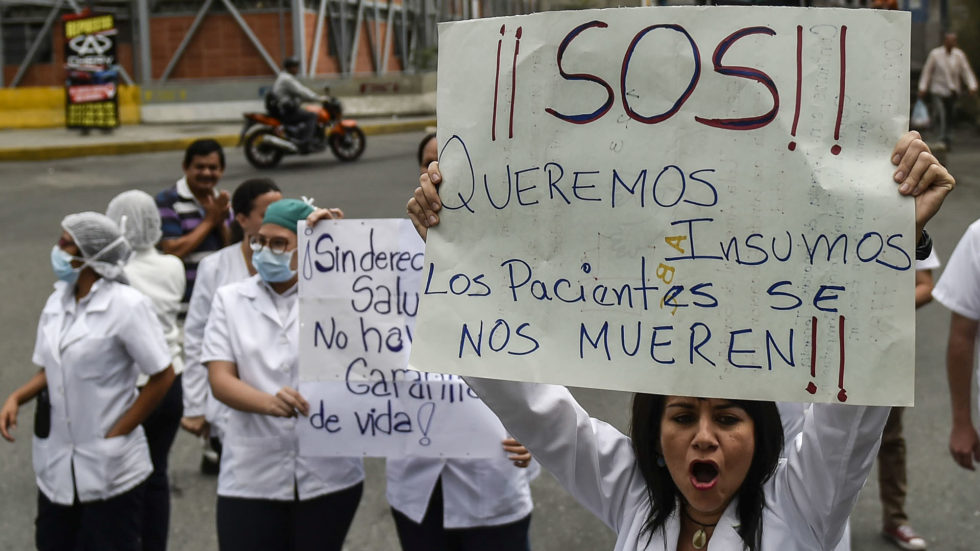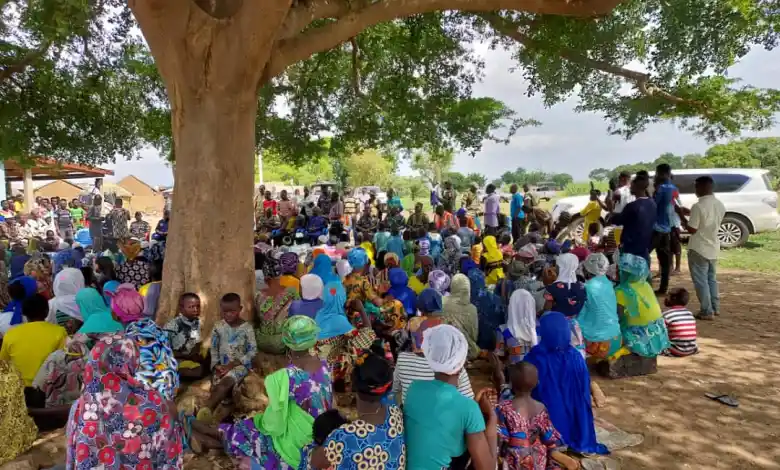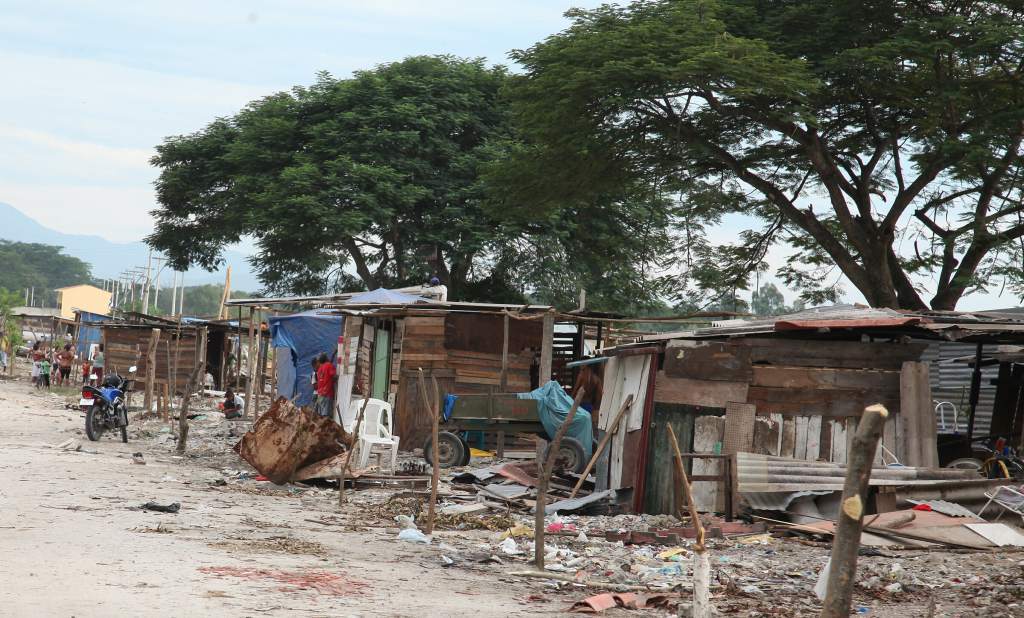
IHR LEGAL Newsletter
IHR LEGAL Newsletter
July – September 2023
In the complex and ever-changing world of Human Rights, we keep up-to-date to share the most relevant developments in the regional and universal human rights systems.
In this issue:
Highlights of our latest newsletter
- On July 4, 2023, the Office of the United Nations High Commissioner for Human Rights published a report on the human rights situation in Venezuela. The report covers several issues, including the lack of vaccination of children, floods caused by climate change, and precarious labor conditions. In addition, the report highlights that the economic sanctions imposed on Venezuela affect essential public services and recommends the lifting of these sanctions.
- On July 21, 2023, the African Commission on Human and Peoples’ Rights issued a statement expressing its concern over the expulsion of more than 200 Burkinabe refugees and asylum seekers by the Ghanaian authorities. The Commission condemned the deportations and Ghana’s treatment of the Burkinabe refugees and asylum seekers, recalling that such action violates the principle of non-refoulement present in the Convention Governing the Specific Aspects of Refugee Problems in Africa, and other rights enshrined in the African Charter on Human and Peoples’ Rights.
- On July 28, 2023, the Inter-American Court of Human Rights declared Paraguay internationally responsible for the torture of police inspector Jorge Luis López Sosa. The facts of the case refer to the fact that, in the context of an attempted coup d’état in May 2000, Mr. López was interrogated and tortured because some agents accused him of allegedly having participated in the coup attempt. The Court concluded, among others, the violation of his right not to be tortured, to personal liberty, and judicial guarantees.
- On July 13, 2023, the European Court of Human Rights found that Azerbaijan had violated the right to respect for private and family life by rendering one of its citizens stateless. Mr. Huseynov was subjected to criminal proceedings and renounced his nationality. The Court considered that there were several elements to consider that this renunciation was not voluntary, and therefore found Azerbaijan responsible for the violation of his rights.
Access Previous Issues:
IHR LEGAL Newsletter January – March 2023
– On March 27, 2023, the OHCHR launched a new country report concerning freedom of expression in Yemen. In the report, the OHCHR recalled that the right to seek, receive and impart information and ideas of all kinds is guaranteed to all individuals, without distinction of any kind. In addition, the OHCHR affirmed that freedom of expression also includes a free, uncensored, and unhindered press and media, which are essential in society to ensure freedom of opinion and expression. Regarding Yemen specifically, the OHCHR pointed out that the ongoing conflict in the country has entered its ninth year due to conflict-driven propaganda and disinformation which led to ideological and socio-political conflicts throughout the country. In this sense, the parties to the conflict have characterized critical voices in society as foreign actors who want to threaten national security, which has directly delegitimized the work of journalists and even caused self-censorship. The consequences of this scenario were manifold: many of the journalists who wanted to maintain the integrity of their work left the country, women journalists suffered severe bullying on the internet, and threats, arbitrary arrests, enforced disappearances, and killings continued to be a constant reality in the country.
IHR LEGAL Newsletter October-December 2022
On July 7, 2022, the ECtHR ruled that Italian authorities did not respond with the requisite promptness and diligence in dealing with domestic violence in the case of “M.S. v. Italy”. The applicant, M.S., an Italian national, was assaulted, harassed, and threatened for years by her then-husband, D.P., for which reason she filed several complaints against him. However, the State authorities began to take measures late, for which reason the ECtHR held the State responsible for the period in which it did not take effective measures.
IHR LEGAL Newsletter July-September 2022
On July 7, 2022, the ECtHR ruled that Italian authorities did not respond with the requisite promptness and diligence in dealing with domestic violence in the case of “M.S. v. Italy”. The applicant, M.S., an Italian national, was assaulted, harassed, and threatened for years by her then-husband, D.P., for which reason she filed several complaints against him. However, the State authorities began to take measures late, for which reason the ECtHR held the State responsible for the period in which it did not take effective measures.
IHR LEGAL Newsletter – April – June 2022
HRC decision on violation of human rights of murdered protesters; ACHPR statement on terrorist attack in the Republic of Togo; ECtHR judgment in the Case “Taner Kılıç v. Turkey” for the arbitrary detention of one of the founders of Amnesty International Turkey; and much more.
IHR LEGAL Newsletter – January – March 2022
Statement by the UN High Commissioner for Human Rights, Michelle Bachellet, on Russia’s war crimes and serious violations of international humanitarian law and human rights in Ukraine; ECtHR ruling in the case “Karuyev v. Russia” for a criminal conviction for spitting at a portrait of Putin; IACHR pronouncement on detentions and prosecutions of participants of the July 2021 protests in Cuba; and much more here.
I. UNIVERSAL HUMAN RIGHTS SYSTEM
1. Office of the United Nations High Commissioner for Human Rights (OHCHR)
The OHCHR is the principal human rights entity of the United Nations. Its functions include promoting and protecting all human rights, helping to empower people, and developing a human rights perspective in all United Nations programs. The current United Nations High Commissioner for Human Rights is Mr. Volker Türk.
News from the OHCHR:
– On July 4, 2023, the OHCHR published a new country report concerning the human rights situation in Venezuela. The report covers the period between May 1, 2022, and April 30, 2023, focusing mainly on the latest developments related to economic, social, cultural, and environmental rights, the rule of law and civic space, as well as the degree of implementation of recommendations made in previous reports. In the report, the OHCHR noted that even though the country had a growth in gross domestic product of 17.73% in 2022, there are factors that continue to negatively affect essential public services. One of such factors, according to the OHCHR, is the imposition of economic sanctions.
In terms of the education system, it was observed that the coronavirus pandemic has significantly affected the sector, including difficulties in meeting the minimum conditions for quality education, problems of insufficient funding, infrastructure, nutrition, working conditions and poor salaries for teachers. Regarding the health sector, the OHCHR found that 560,000 children between 12 and 23 months have not received vaccines, including rubella. In addition, sexual and reproductive health services, such as obstetric care, are basically unavailable or inaccessible.
Health workers protest against the situation of the health system in Venezuela. Source: Acción Solidaria.
On the other hand, on the right to a clean, healthy, and sustainable environment, Venezuela was found to be responsible for less than 1% of current global emissions, yet is highly exposed to the consequences of climate change, such as torrential rains, which have contributed to flash floods and human tragedies.
The report also covers several key issues, such as labor rights, the situation of people in rural areas and indigenous peoples, the independence of the judiciary, gender-based violence, investigations in cases of enforced disappearance, and the rights to liberty and security, among others. The OHCHR finalized its report with an extensive list of conclusions and recommendations, including the need to lift sectoral sanctions that exacerbate pre-existing challenges and limit people’s enjoyment of their human rights. The report can be found here.
II. AFRICAN HUMAN RIGHTS SYSTEM
1. African Commission on Human and Peoples’ Rights (ACHPR)
The ACHPR is a quasi-jurisdictional body, within the framework of the African Union, whose main function is to protect and promote human and people´s rights in African countries. Among its functions are to process complaints from individuals or States about human rights violations committed by States in the region, and to receive periodic reports from States on the human rights situation in their country.
News from the ACHPR:
– On September 11, 2023, the ACHPR issued a press release about the terrorist attack on the Timbuktu boat in Mali, which caused the death of 64 people. The attack, which took place on September 7, 2023, was carried out by the Support Group for Islam and Muslims (GSIM), a militant jihadist organization operating in the Maghreb and West Africa. On the occasion, militants attacked a boat that was sailing on the Niger River, from the city of Gao to the city of Mopti, since the river is an important transportation link in a region where there are not many quality roads. According to data, 64 people were killed, 49 civilians and 15 soldiers, as well as several people were injured.
The ACHPR expressed its deep concern at the resurgence of these terrorist attacks and the many human rights violations they cause. Likewise, the ACHPR offered all its condolences to the families of the victims and the people of Mali and also called on the country’s authorities to conduct independent and impartial investigations into these attacks to identify and bring to justice the perpetrators and their accomplices. The ACHPR also reiterated its call on the African Union and the international community in general to redouble their efforts in the fight against terrorism. The press release (in French) can be found here.
– On July 21, 2023, the ACHPR issued a statement expressing concern over the expulsion of more than 200 Burkinabe refugees and asylum seekers by Ghanaian authorities. The events began on July 11, 2023, when the Ghanaian armed forces started the forced deportations of refugees and asylum seekers from Burkina Faso who were fleeing the deteriorating security situation in the country due to the activity of armed groups. Since 2019, Burkina Faso has become the epicenter of violence by armed groups, especially non-state armed ones such as Ansarul Islam and the Islamic State in the Greater Sahara, which remain active in the country. The consequences of this context can be seen in the vast number of people who have left the country (since 2019 more than 1,800,000 people).
Refugees and asylum seekers from Burkina Faso in a camp in Ghana. Source: Asaase Radio
The ACHPR condemned the deportations and the treatment that Ghana offered to Burkinabe refugees and asylum seekers, recalling that such action violates the principle of non-refoulement present in the Convention Governing the Specific Aspects of Refugee Problems in Africa, to which Ghana is a State Party. The ACHPR recalled that, under this principle, which is contained in Article 2(3) of the Convention, the State is obliged to take all necessary measures to guarantee assistance and protection to refugees and asylum seekers in its territory. In this sense, expelling them to a territory where their safety is at risk violates the provisions of the Convention. In addition, the ACHPR also noted that the actions of the State of Ghana also violated the African Charter, since respect for human dignity, human security, and the right to choose one’s residence were not observed. The ACHPR urged Ghana to respect the rights contained in the African Charter and the Refugee Convention and to ensure the protection of Burkinabe refugees and asylum seekers. The press release can be found here.
III. EUROPEAN HUMAN RIGHTS SYSTEM
1. European Court of Human Rights (ECtHR)
The ECtHR is a judicial body of the Council of Europe whose main function is to monitor the compliance of States parties with the European Convention for the Protection of Human Rights and Fundamental Freedoms (ECHR). The ECtHR is responsible for analyzing complaints from individuals, groups of individuals, or States for human rights violations committed by States that have accepted the ECtHR’s jurisdiction.
News from the ECtHR:
– On September 14, 2023, the ECtHR found that Italy had violated the right to life by failing to take the necessary measures to prevent the death by drug overdose of a person in its custody. The case states that on May 10, 2001, C.C. was arrested as part of an anti-drug trafficking operation, while he was leaving his flat in Milan with signs of drug abuse. He was transferred and handcuffed to a cell at the police headquarters in Milan. About two hours after arriving there, he asked to use the bathroom, where he started vomiting and collapsed. Finally, an ambulance was called, as C.C. appeared to be in a cyanotic state. The victim was taken to Fatebenefratelli Hospital, where he was declared dead.
In 2003, a report concluded that the cause of death was cocaine intoxication. However, the prosecutors opted not to open an investigation since there was no criminal evidence of the actions of a third party. The applicants sued the Minister of the Interior for failure to assist a person in danger and also failure to supervise properly, which was upheld by the Milan District Court. Nevertheless, the decision was overturned by the Milan Court of Appeal. In 2011, the Court of Cassation decided that it could not reconstruct the facts and that the Court of Appeal’s decision had been reasonable and logical.
The ECtHR expressed that, since the right to life is one of the most essential guarantees of the Convention, the authorities are obliged to take into account the treatment of individuals in police custody due to their situation of vulnerability, with the authorities bearing the burden of proof when injuries or deaths occur during detention. The ECtHR pointed out that, although there was not so much evidence to know that C.C. would be at imminent risk from using a lethal dose of cocaine, the authorities had an obligation to take basic precautions to minimize the risks to his health and, in this case, he was known to the police as a drug addict. In addition, at no time did the victim receive medical attention after his arrest, and it is unknown whether he was properly supervised and, for all these reasons, the ECtHR found that there had been a violation of Article 2 (right to life) of the Convention. The press release can be found here.
– On July 13, 2023, the ECtHR found that the decision to terminate the citizenship of an Azerbaijani journalist, rendering him stateless, violated his right to respect for private and family life in the “Emin Huseynov v. Azerbaijan” case. The facts refer that Emin Huseynov, who currently is a stateless person living in Geneva, worked as an independent journalist and was the chairman of the Institute for Reporters’ Freedom and Safety (IRFS), which is a non-governmental organization specializing in the protection of journalists’ rights in Azerbaijan.
In April 2014, a criminal case started in Azerbaijan for alleged irregularities in the financial activities of several non-governmental organizations, including IRFS. In August 2014, Mr. Huseynov was stopped at the airport and, fearing arrest, he went into hiding. Later, the Azerbaijani Government prosecuted Mr. Huseynov for illegal entrepreneurship, large-scale tax evasion, and abuse of power.
In this context, in a way that may not have been voluntary, Mr. Huseynov manifested to the President of Azerbaijan that he wanted to renounce his citizenship while indicating that he did not hold any other nationality. Subsequently, in 2015, Mr. Huseynov left the country. His citizenship was terminated in June 2015 and in October of the same year, Switzerland granted him asylum.
Regarding these facts, the ECtHR found that the decision terminating Mr. Huseynov’s citizenship not only left him without any valid identity document but also led to uncertainty concerning his legal status as an individual and his social identity, for which reason there was an interference with his right to respect for private life according to Article 8 (right to respect for private life and family life) of the ECHR.
Among its considerations, the ECtHR found that the national authorities neglected the fact that by terminating Mr. Huseynov’s citizenship, he would be left in a stateless situation, which is in contradiction with several international norms, such as Article 7 of the United Nations Convention on the Reduction of Statelessness which states that “if the law of a Contrating State permits renunciation of nationality, such renunciation shall not result in loss of nationality unless the person concerned possesses or acquires another nationality”). Still, the ECtHR was unable to establish whether the renunciation of citizenship was voluntary or forced, although it found that several elements caused doubt about the voluntary nature of the renunciation. In addition, the ECtHR pointed out that Mr. Huseynov could not even challenge the decision that terminated his citizenship before the national courts and, for all these arguments, decided that Article 8 of the ECHR had been violated. The press release can be found here.
IV. INTER-AMERICAN HUMAN RIGHTS SYSTEM
1. Inter-American Commission on Human Rights (IACHR)
The IACHR is the autonomous body of the Organization of American States (OAS) responsible for the promotion and protection of human rights in the Americas. One of its duties is to receive and review complaints from individuals for human rights violations and to monitor human rights situations.
News from the IACHR:
– On August 28, 2023, the IACHR and its Office of the Special Rapporteurship on Economic, Social, Cultural, and Environmental Rights (REDESCA) published their new thematic report on poverty, climate change, and Economic, Social, Cultural, and Environmental Rights (ESCER) in Central America and Mexico, in the context of human mobility. The report took into consideration for analysis Panama, Costa Rica, Nicaragua, El Salvador, Honduras, and Guatemala. Mexico was also included due to its geographical proximity and geopolitical importance. These countries, affected by poverty, inequality, and limitations on access to enjoyment of ESCER, are also affected by complex migratory phenomena. In addition to these factors, in some of these countries, there is political instability, armed conflicts, and civil wars, as well as the presence of authoritarian governments that promote an environment of repression.
The report covers many relevant issues, including the panorama of ESCER in Central America and Mexico, poverty and inequality as causes of human mobility, the climate emergency concerning human mobility, and the protection of ESCER in the context of human mobility. The report states that, although historically violence, insecurity, and natural disasters have been the main triggers for Central American migration, one of the biggest factors nowadays is the economic one. In this sense, the IACHR stated that poverty plays a leading role in the issue since people in situations of human mobility who have decided to leave their countries express that their decision is due to their need to find work, cover their essential needs, food, and other ESCER. Regarding climate change, the IACHR has noted that one of the population groups that are being affected primarily are the “frontline communities”, groups of people who are directly affected by climate change, such as rural communities that depend on their agricultural work.
Poverty in Central America. Fuente: El País.
The IACHR has made a series of recommendations to the States, which include adopting deliberate and concrete measures as a matter of priority to advance in guaranteeing the ESCER of all people, incorporating the perspective of gender equality and intersectionality into the framework of all measures, plans and policies to guarantee ESCER in the context of human mobility, and implementing economic and sustainable development policies that allow for the expansion of national social protection, poverty alleviation and hunger eradication programs, among others. The thematic report (in Spanish) can be found here and the press release (in Spanish) here.
2. Inter-American Court of Human Rights (IACtHR)
The IACtHR is a regional human rights court responsible for applying and interpreting the American Convention on Human Rights and other human rights instruments in the region. Its main function is to decide cases on human rights violations committed by States that have accepted its jurisdiction.
News from the IACtHR:
– On August 11, 2023, the IACtHR declared Argentina internationally responsible for the delay in the execution of a writ of amparo that dealt with the remuneration of a judge, in the “Boleso v. Argentina” case. The victim in the case, Mr. Héctor Hugo Boleso, was a labor judge in the province of Corrientes. As a result of the hyperinflation, he filed an amparo action on February 21, 1990, against the province of Corrientes for the intangibility of his salary as a judge. The writ of amparo was granted in 1992 and the province of Corrientes filed an extraordinary federal appeal against the decision, which was denied in August 1997. However, when the victim tried to execute the amparo judgment, the Superior Court of Justice of Corrientes informed him that the amparo decision was only declaratory and that there would be no payment. The victim therefore filed all the corresponding appeals, through which the Supreme Court of Justice of the Nation decided to vacate the judgment affirming the declaratory nature of the amparo and ordered a new judgment to be handed down. It was not until June 2004 that the Superior Court of Justice of Corrientes handed down a new ruling, ordering the payment of what was owed, which happened in March 2011, according to the settlement made by the victim.
The IACtHR decided that Articles 8.1 (right to a fair trial) and 25.1 (right to judicial protection) of the American Convention had been violated. Initially, the IACtHR analyzed the total duration of the proceedings, which lasted more than 21 years, considering that the amparo action was filed on February 21, 1990, and the due payment was not made until March 4, 2011. When examining the elements that would allow it to conclude a violation of the reasonable time limit, the IACtHR identified that, given the complexity of the matter, there was no reason to justify the delay that occurred. In this sense, the IACtHR also concluded that the procedural activity of the interested party was always oriented towards the momentum of the process and it was not found that the conduct of the judicial authorities was aimed at delaying the process. For all these reasons, the IACtHR found a violation of the aforementioned articles, due to the delay in processing the case. The decision (in Spanish) can be found here and the press release (in Spanish) here.
– On July 28, 2023, the IACtHR decided that Paraguay was internationally responsible for the torture of police inspector Jorge Luis López Sosa, as well as for the violation of other human rights of the victim. The facts of the case are set in the context of an attempted coup d’état that took place on May 18, 2000, by some members of the First Army Corps, the Command, and other branches of the National Police. The coup aimed to depose the president of the Republic, who at the time was Luis Ángel González Macchi. In this scenario, the President suspended rights and guarantees enshrined in the Political Constitution. On the morning of May 19, 2000, Mr. López Sosa, who worked as a petty officer in the National Police, went to his place of work. When he arrived there, he was called by his boss, who told him that he should report to Commissioner J.B.P. at Metropolitan Commissionerate 11. When he arrived there, he was taken to the dispatch where an officer disarmed him, tied his hands, blindfolded him, and laid him on the ground. At that point, several officers began to ask him a series of questions about what he had done the night before, assuming that Mr. López Sosa had some kind of participation in the coup attempt. Mr. López Sosa was beaten with a stick and in other ways throughout the morning, while he heard another detained person being beaten and screaming in pain. He was subsequently transferred to two establishments, where he remained handcuffed and in precarious and inhumane conditions.
He was then subjected to two procedures: a police disciplinary procedure and a criminal procedure. In the first one, he was found to have participated in the attempted coup and was punished with an administrative sanction and dismissal from the service. In the criminal proceedings, the Public Prosecutor’s Office issued a resolution ordering the arrest of Mr. López Sosa, indicting him for the crime of “punishable acts against the existence of the State and against the constitutional order”. He was thus imprisoned until December 14 of the same year and, at the end of his imprisonment, the criminal proceedings were declared extinct and Mr. López Sosa was reincorporated into the National Police, with the same position he had previously held.
The IACtHR concluded that Article 7 (right to personal liberty) was violated. Firstly, Article 7(2) was violated because the detention of Mr. López Sosa was not carried out through a written order from the competent authority before the arrest. Secondly, Articles 7(4) were violated, as he was not informed of the reasons for his detention, and 7(5), as the right to be brought before a judge within a period not exceeding 24 hours was not complied with. The Paraguayan State was also held responsible for the acts of torture inflicted on Mr. López Sosa by State agents, since it was considered to have been intentional, to have produced physical and psychological suffering, and to have sought to obtain a confession, in clear violation of Articles 5(1) and 5(2) (right to humane treatment and prohibition of torture), as well as Articles 1 (obligation to prevent and punish torture) and 6 (obligation to take effective measures to prevent and punish torture) of the Interamerican Convention to Prevent and Punish Torture. Finally, the IACtHR found that Articles 8 (right to a fair trial) and 25 (right to judicial protection) were violated, since there were failures within the framework of the investigation (such as the production of physical evidence), as well as non-compliance with the reasonable time limit (more than 22 years have passed since the facts occurred without a firm judgment). The decision (in Spanish) can be found here and the press release (in Spanish) here.
Access Previous Issues:
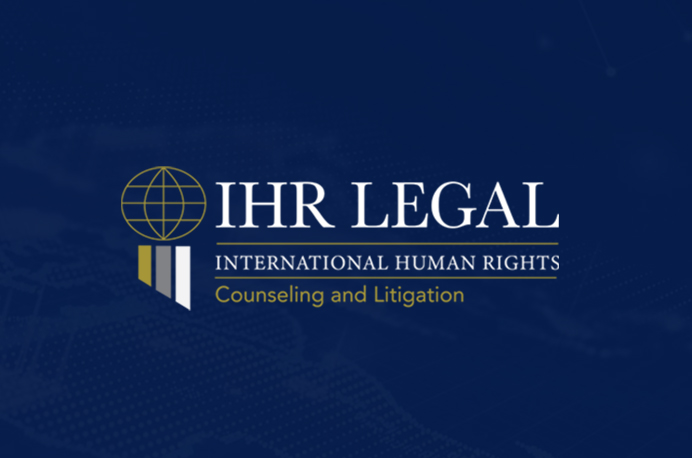
IHR LEGAL Newsletter – April to June 2021
Joint Statement on the eve of the International Day against Homophobia, Lesbophobia, Biphobia and Transphobia; Statement by UN High Commissioner for Human Rights, Michelle Bachelet, on the increase of human rights violations and abuses in Mali; Statement by the African Commission on Human and Peoples’ Rights on the occasion of the International Day in Support of Victims of Torture; and much more here.

IHR LEGAL Newsletter – January to April 2021
Statement on the George Floyd case by UN High Commissioner for Human Rights, Michelle Bachelet; IACHR Resolution on “COVID-19 vaccines in the framework of Inter-American Human Rights obligations”; African Commission on Human and Peoples’ Rights Resolution on the excessive use of force by agents of African States; and much more here.
